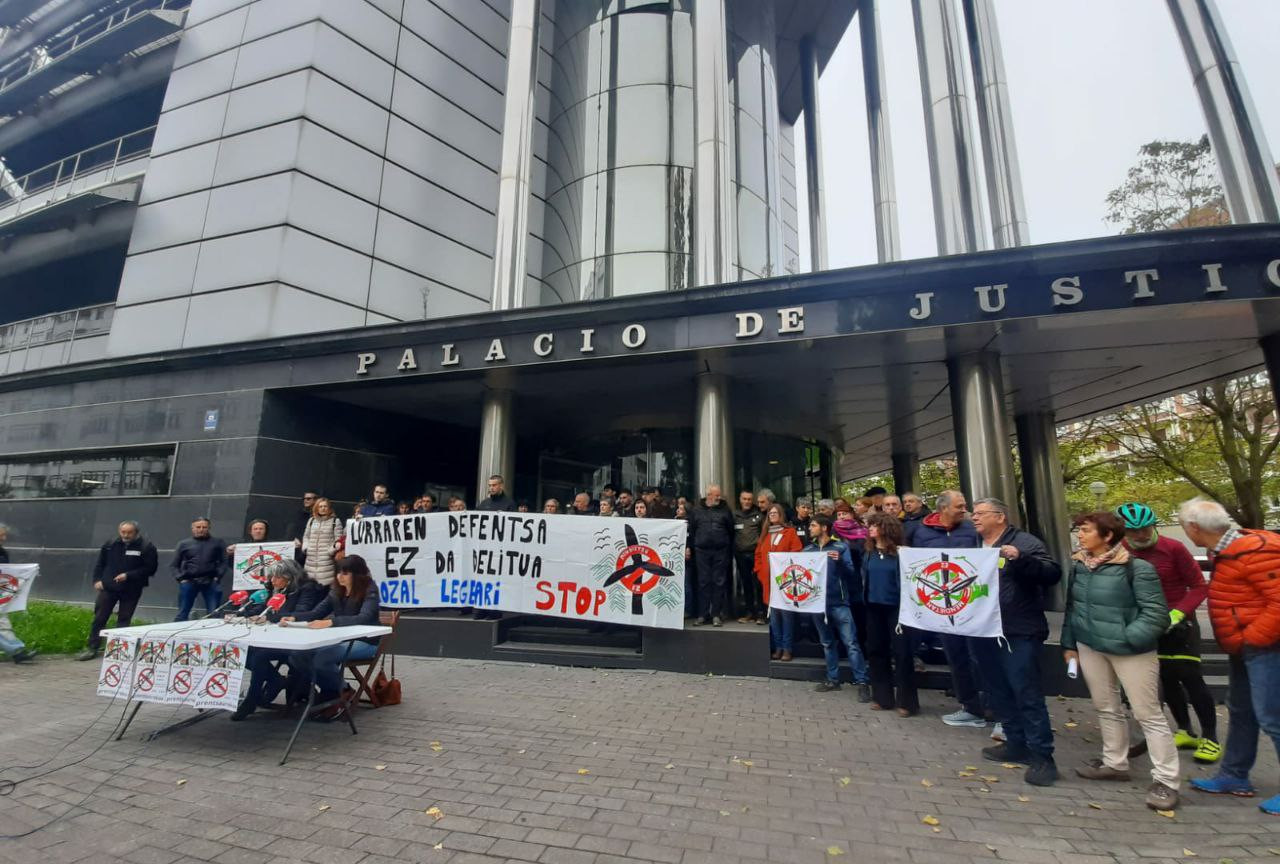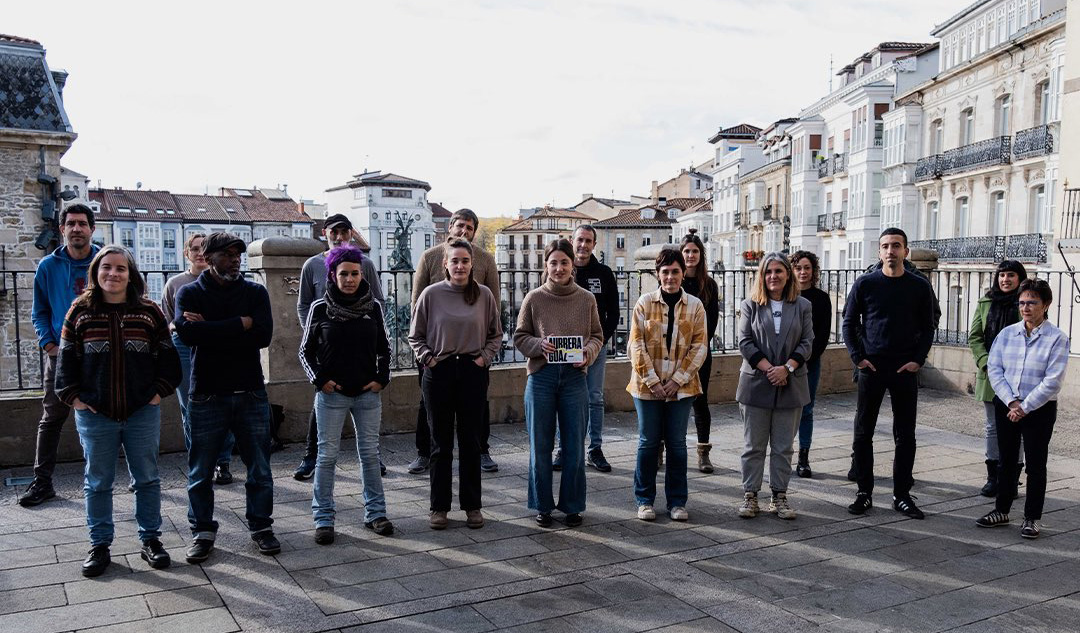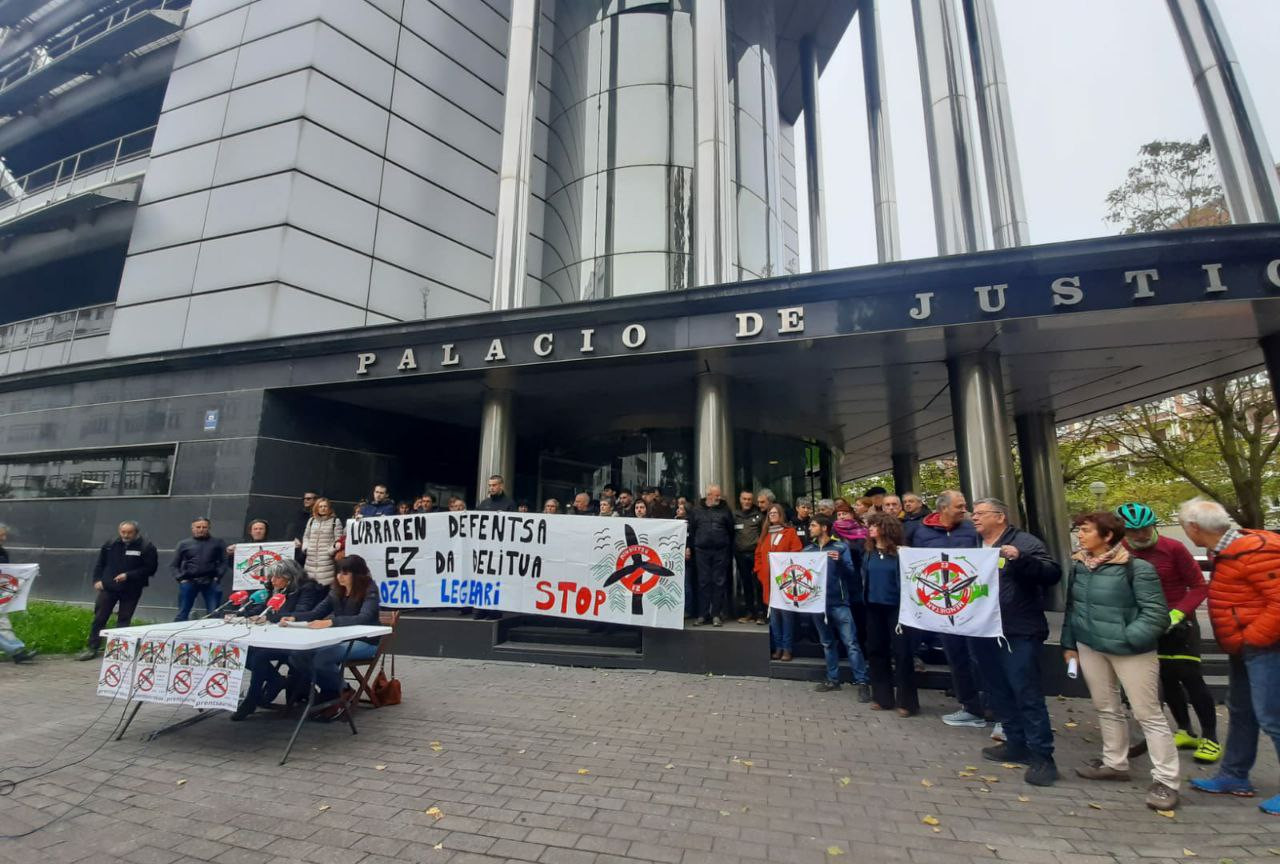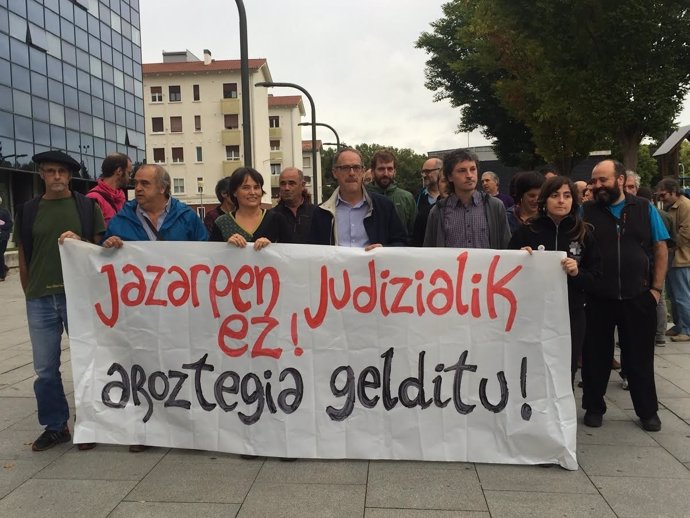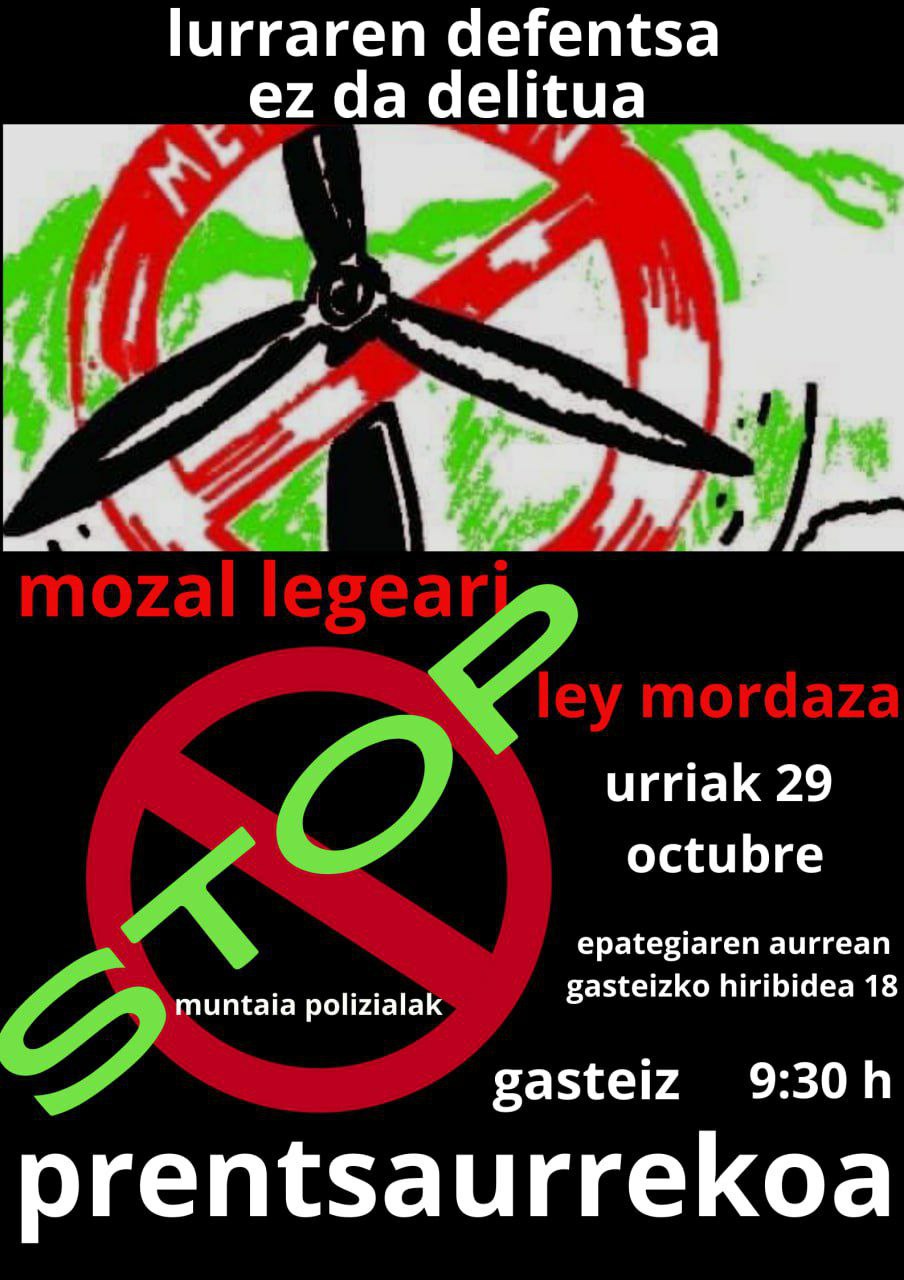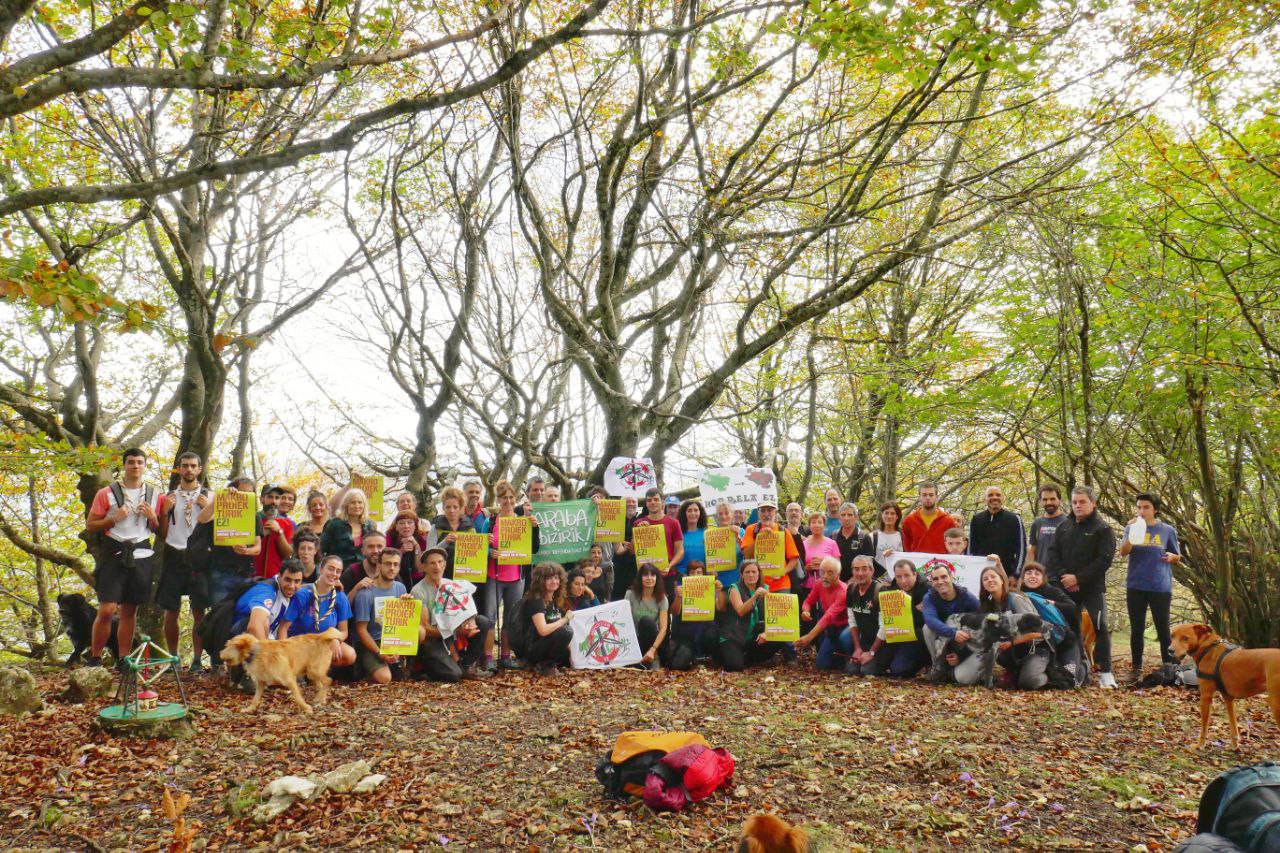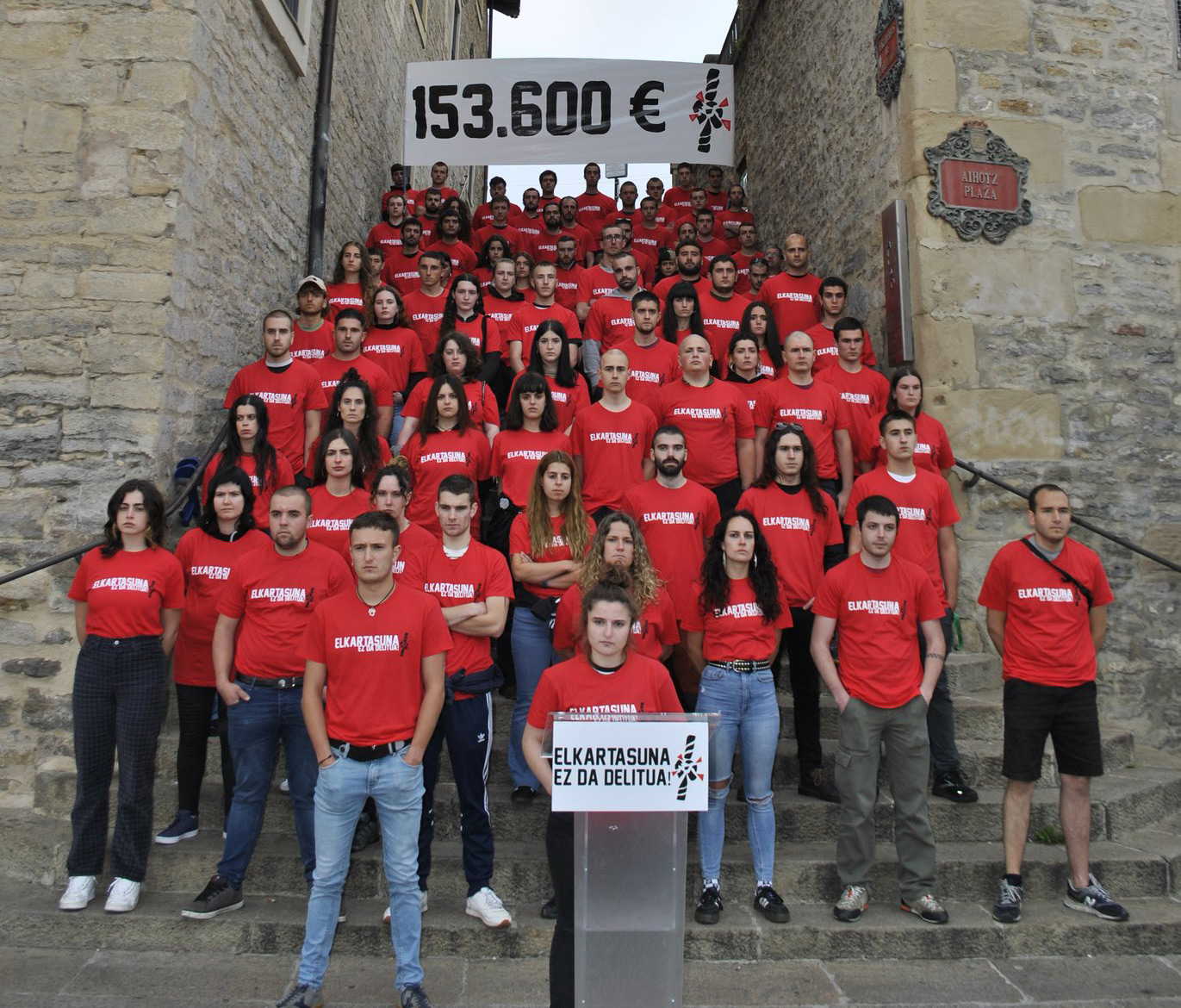Hala Bedi will sue the Basque Government for imposing the Mozal Law on a journalist
- After almost a year of trial, the Department of Security of the Basque Government has confirmed the fine imposed on the journalist Mikel Saenz de Buru Hala Bediko: The Citizen Security Law was applied to the journalist for recording a police operation in the Errekaleor neighborhood of Vitoria-Gasteiz. Excluding all allegations, Saenz de Buru would be the first journalist in the Basque Country to be sanctioned by the Mozal Law.

Hala Bedi has announced that they will arrive "to the end" to fight the "attack on freedom of information". They denounce that the attack is based on a "false report by the Basque Government", which is why they will resort to a contentious administrative trial against the sanctioned resolution.
All evidence submitted by Hala Bedi has been rejected. The media denounces that the administrative process has been "kafka"
The behavior of the Basque Government has been strongly criticized for having applied "an unjust law that violates civil and political rights" and for having "supported a police montage". It is recalled that the Basque Parliament undertook not to apply the aforementioned law.
They claim to have undergone a "kafkaesque" administrative process and consider that their right to defense has been violated, since they have been denied all the evidence presented, through audio-visual files and witness statements that question the police version.
In addition, the criminal petition is “without a doubt” in the so-called police montage. Rather than being organized on the day of the events, it is considered to be an accusation built later, "as a punishment for the journalistic work carried out in Errekaleor" and "as a revenge for the public denunciation" carried out after the attack suffered that day.
What happened in Errekaleor that morning of May 18, 2017?
Why was the journalist in Hala Bedi punished while doing his job? Why was he attacked while working? Why wasn't he notified of the penalty the same day? How is it possible that his status as a journalist is not mentioned in police reports even after his identification with the press card?
On the 18th of May, two journalists from Hala Bedi followed up on what happened in Errekaleor from the morning, knowing that a police operation had been launched in the occupied Errekaleor district, in which they had to cut electricity. All the content published that day can still be easily found on the network: minute by minute tracking on social networks, direct telephone connections or even the video itself that had thousands of views in those days.
The journalist Mikel Saenz de Buru Hala Bedi was attacked by a gunman who knocked down the phone he was using to record it and left it destroyed.
At 12.30 p.m., Mikel Saenz de Headeraga, a journalist from Hala Bedi, was attacked by a gunman while the journalist was recording police action with a mobile phone. The same gunman knocked down his cell phone on purpose and was devastated.
After that, the two journalists from Hala Bedi demanded the identification of the police with press cards in their hands at all times. They also requested explanations for the attack they had received from one of the cops leading the operation. However, the journalists themselves were ultimately the only ones identified.
In the case of Mikel Saenz de Buru, the Basque Government withdrew the press release, as well as the NA, without giving any explanation. In the end, the Chief Constable returned the two documents, together with a handwritten piece of paper, which allegedly contained the written identification number of the person responsible for the attack. At that moment, the Chief Constable also commented: "We know you. We know that you are from a radical environment."
In the meantime, the journalist was not aware of any misconduct and no one expressed any intention of imposing a fine. In fact, that same afternoon, Hala Bedi issued a statement denouncing everything that had happened.
In this video it can be seen that the journalist was in Errekaleor all morning doing pure journalistic work behind the police fence: recording with his mobile phone, spreading images on social networks and making telephone connections with the radio as an informant.
A few minutes after the arrival of the police station, another police barrier was established at the entrance to Errekaleor, which prevented journalists from other media outlets from reporting on the incident in person. This was denounced by many of them at the very entrance of the neighborhood; in fact, some even used images of Hala Bedi to inform them of what was happening.
The Labyrinth of Mozal Law and Administrative Procedures
In July, however, two months after the events of Errekaleor and without any previous news, the Basque Government sent the journalist the communication: He was fined 602 euros for a serious violation of the Citizen Security Law, known as the Gag Law.
The sanctioning file was based on a police report in which it was reported that the journalist from Hala Bedi violated article 36.6 of the aforementioned law, taking advantage of "disobedience or resistance to authority", because he allegedly overcame the police barrier of Rekaleor on May 18.
The accusation has been denied at all times by both Hala Bedi and the journalist himself, who has described the fine as "revenge and an attack on freedom of information".
At that time, the assembly of Hala Bedi decided to respond to the attack as a collective and publicly denounce it, while declaring "the intention to disobey": it was reported that the fine would not be paid, even if it would be appealed to the final consequences. This same assembly put this answer on the table as a response to an "injustice" because "the law itself is not fair and the imputed facts are false."
The solidarity and the impact on the media were very high, as it was the second time that the Mozal Law was applied to a Basque journalist (the first was the journalist of LA LUZ, Axier López, who was eventually fined). Many collectives and associations supported Hala Bedi and the prisoner himself, and considered the fine a “violation of freedom of the press.”
Several media and collectives have denounced the fine imposed on Hala Bedi. The Association for Freedom of Information denounces the "growth without measure" of the Mozal Law
On July 28, the Association of Basque Journalists and the Basque College of Journalists issued a joint statement denouncing the "direct attack on the right to information".
The Association for Freedom of Information also filed a complaint with the Spanish Ombudsman to denounce "the concealment of fines against freedom of information in the midst of generic violations" and to reveal the "unbridled growth" of these fines.
In August, the Spanish Ombudsman initiated proceedings in response to the PDLI complaint. At the same time, Hala Bedi made contacts with the Ombudsman of the Basque Country, which confirmed that the Ombudsman had opened a file.
Recently, the PDLI has reported on the issue in its 2017 report, The Year of Crimes of Opinion.
In August, the journalist from Hala Bedi filed his first administrative appeal. Subsequently, after eight months of process and six official notifications and five appeals, on March 28, the Department of Security of the Basque Government issued the notification of the sanctioning resolution: It confirmed the fine against Mikel Saenz de Buru.
Hala Bedi denounces that the journalist has suffered a situation of indefense throughout the process, as well as that the reason for the fine is "a lie from top to bottom". Thus, he has criticized, among others, the elements that have been "continuous throughout the maze of notification-recurso-notification". Here is a summary of them:
The file does not verify the facts on which the fine is based. The Department of Security of the Basque Government has even denied that Saenz de Buru was identified with his press release, and Hala Bedi has denounced that "lying about this matter is especially serious, since several people saw that it was so".
The defense has not yet received a confirmation document from the police officers who filed the complaint, even though it is an indispensable document
However, reference has been made repeatedly to article 52 of the Citizen Security Act, which states: "Complaints, statements or minutes made in the exercise of their functions by agents of the authority who have witnessed the events - if those denounced deny them after their confirmation by the agents - will constitute a sufficient basis for the adoption of the corresponding resolution." Forever "their word against yours", but taken to the extreme, because it gives no chance to prove otherwise. Moreover, even at repeated requests, the defence has not yet received the confirmation certificate from the police officers who lodged the complaint, which is essential for the implementation of article 52.
The written statements of the two witnesses presented have been denied and their impartiality has been challenged on the grounds that they are colleagues of Hala Bedi. One of them was a direct witness of what happened and the other was in the newsroom, in constant contact with the journalist who had been fined. There are also audios that show that the journalist was doing his job, since he made several direct connections with the radio station Hala Bedi that day.
The value of the video presented as evidence has also been denied on the grounds that it does not contain the facts "in their entirety". Hala Bedi said that to say this "is to ignore the content of the video, without forgetting that the only video that would serve as definitive proof would be the one recorded with the shredded mobile".
Hala Bedi denounced that "the formula is clear: he is guilty unless proven otherwise." For this reason, there has been a clear condemnation: "We want to denounce the fine, but also this specific administrative process, and the Gag Law in general." They consider the process to be "built on a lie" and declare that they will go "to the end" to "prevent the injustice from being carried out".
No silences, no mockery, for freedom of expression
It's not the only case. Mozal would be the first Basque journalist to be sanctioned by the Law, but the Basque Government has applied the law for more than 8,000 times since July 2016, despite its commitment not to apply it. It is also used to violate rights: civil and political rights and freedom of expression, the press and information are at stake.
The Basque Government has applied the Mozal Law for more than 8,000 periods since July 2016
"It is not an attack on a journalist, but an attack on Hala Bedi, on Errekaleor, on the popular movement, on political and social dissent and, above all, on freedom of information," the members of the media explain. "Hala Bedi decided to disobey the exceptional law as a collective, according to which he will act even from now on, because the accusation is false and the law itself is unjust, endangering the fundamental freedoms of a democracy, in short. A system that denies citizens access to complete information and interferes with journalistic work cannot be considered a democratic system."
"Hala Bedi will not accept the premise behind this absurdity: accepting a police officer's testimony as evidence implies accepting that the police do their job professionally, while the journalist does not." Hala Bedi has declared the situation unacceptable, as it endangers freedom of information and puts the work of information in question. "If this detail is not taken into account, police officers may be given the opportunity to commit any abuse against journalists or media outlets that they do not like."
In the coming weeks, Hala Bedi will file a contentious administrative appeal against the sanctioned resolution. Thus, they have expressed their intention to exhaust all legal channels and to resort to trial, not only to defend their freedom of information, but also to defend their collective right to information diversity.
In addition, next Friday, April 20, at 10:30 a.m., Hala Bedi will appear before the Security Committee of the Basque Parliament to denounce the attack on freedom of information, leave the fine there and demand that the Basque Parliament comply with its commitment not to apply the Gag Law.
In the meantime, they have said that they will continue to do their job, as they have done so far, because this will be the most effective act of disobedience against injustice. "No silences, no mockery. For them, for everyone.”
Nine years ago, pending the adoption of the Mordaza Law, the Council of Europe itself said that the law was going to be “disproportionate” and its “great concern”. “This law is a reactionary and conservative absurdity to criminalize street protest and criticism,”... [+]








